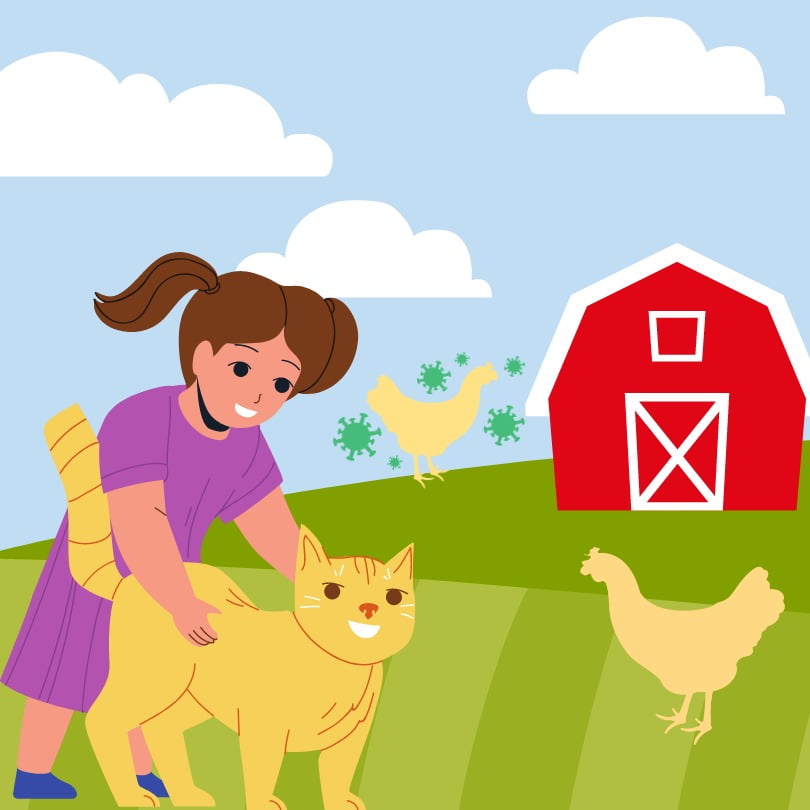At the moment, the word "zoonosis" is being used quite a lot in online news media and I'll tell you why. "Zoonosis" means an infectious disease that is transmitted between species including from animals to humans or from humans to animals. This would also be described as a zoonotic disease.
And as it happens, it is not only the news media who are reporting on bird flu which is a zoonosis as the Centres for Disease Control and Prevention (CDC) report that bird flu has been found in Polish domestic cats. You may have read about this but it is interesting that CDC are reporting on it.
 |
| Beware the zoonosis bird flu. Image: MikeB |
And the word "zoonosis" is an important word today because it was first used a lot during Covid-19. And the reason for that is because Covid-19 is also a zoonosis as it can be transmitted from animals to people and people to animals. It's the way that tigers and lions at some zoos caught the disease from their zookeepers. Some people still think cat owners can get it and are getting from their cats.
And there is a general concern that another pandemic may start up from the transmission of an unknown disease in a wild animal to a human.
And in this instance, an outbreak of H5N1 bird flu in household cats was recently reported by the World Health Organisation. The news underlines the fact that this virus can infect and cause illness in household pets.
The report is that 34 domestic cats across eight provinces in Poland tested positive for avian flu influenza A otherwise known as H5N1 bird flu.
Sadly, many of the infected cats had symptoms of neurological damage. There symptoms included paralysis and seizures. They became severely ill or died. Bird flu is widespread globally among domestic poultry and wild birds and it's caused the occasional infection in mammals.
The risk assessment to humans, despite the above report, is low and CDC states that there is no evidence of cat-to-cat transmission. In general, domestic cats rarely become infected with H5N1. When they do it is most often after eating raw, sick or dead infected wild birds or poultry or they live in an environment contaminated by these birds, perhaps on a farm.
Apparently, among the infected cats most of them lived inside with some outdoor access but some were primarily outdoor cat which will leave them likely to be exposed to wild birds if they were keen predators as most domestic cats are.
It is also reported that some infected cats were fed raw poultry or poultry parts. Of the 34 infected cats, 11 died from their infection and 14 were euthanised because of the infection. The exact source of H5N1 of exposure is unclear in this instance.
I have written about raw cat meat. Bird flu is one reason why raw meat is risky as a cat diet.









